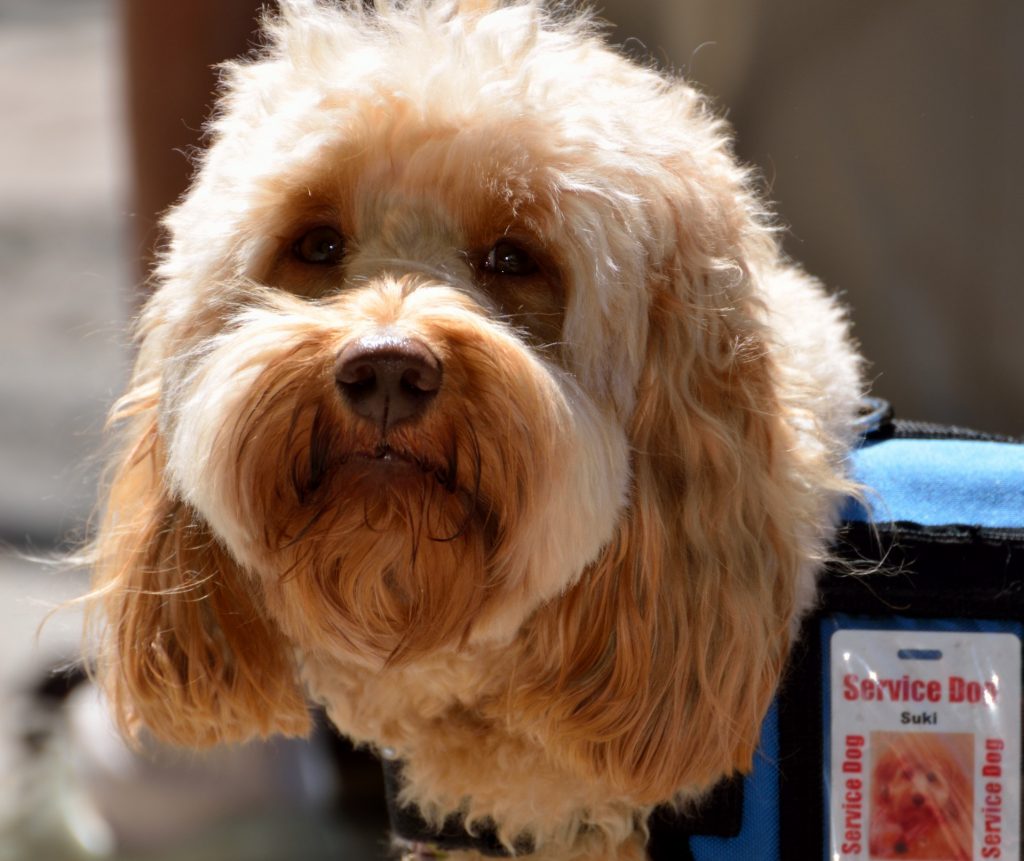
Letting the Dogs In: How to Tell a Service Animal from a Health Hazard

Story by Rebecca Lightle
Hospitality establishments nationwide are seeing more patrons accompanied by furry friends. This trend presents special challenges for the food-service industry. Restaurants must generally follow local health rules that prohibit animals on the premises. But the Americans with Disabilities Act (ADA), Title III, requires places of public accommodation – such as restaurants – to admit “service animals” who assist individuals with disabilities and who meet behavior standards, including in buffet lines or communal food-preparation areas.
Only dogs are considered “service animals” under the ADA (although many of the law’s protections also apply to miniature horses). To qualify as a service animal, a dog must be individually trained to perform specific tasks that directly relate to an individual’s disability. For instance, a service dog may assist with navigation or alert its handler to safety concerns. Because service dogs are not considered pets, establishments cannot subject them to “pet fees” or segregation in “animal-friendly” areas.
However, if a dog provides aid only by its natural behavior, then it lacks the individualized training necessary to qualify as a service animal. This standard means that the ADA does not apply to many dogs that function as therapy, emotional-support, and companion animals. Therefore, admitting these dogs on the premises may violate local health regulations that otherwise do not allow animals to be at food-service establishments.
To further complicate matters, it may often be difficult for restaurant staff to identify true service dogs. The ADA does not permit questioning an individual about the nature of his or her disability. There is also no legal certificate or licensing program for service animals, and pet owners can easily buy “unofficial” documents or apparel with no legal significance.
So how should restaurants assess whether a customer’s dog is a service animal? If it is readily apparent that a dog is aiding an individual with a disability – for example, by leading a blind patron – then staff members should simply allow the dog in as a service animal. But if the dog’s function is not apparent, then the ADA permits only two types of inquiries. First: “Is the dog required because of a disability?” And second: “What specific assistive task(s) has the dog been trained to perform?”
Unfortunately, some service-dog fraudsters are prepared to give false answers to these questions. But courts have recognized that the ADA allows establishments to ascertain their legal obligations by asking follow-up or clarifying questions. For example, service dogs must be fully trained, so staff may ask if training is complete (a puppy would not meet the standard). They may also ask for a more detailed description of the dog’s specific assistive task(s). Managers should proceed with caution in these situations: excessive questioning or requests for demonstrations of the dog’s training would almost never be justified under the ADA.
Even legitimate service dogs can be excluded from restaurants if they are not housebroken or not under their handlers’ control. The ADA also does not give service dogs free rein to threaten others’ legitimate health and safety interests. For example, restaurant staff may – and should – prohibit service animals from eating at tables or sitting on chairs meant for patrons. And service-dog handlers are responsible for property damage to the same extent that other patrons would be held responsible.
Restaurant managers can navigate these challenging situations with animal policies that balance the legal issues at play and instruct staff on permissible questioning. Policies should emphasize that service animals that are fully trained to assist individuals with disabilities are welcome, provided that their handlers effectively control their behavior.
ABOUT REBECCA LIGHTLE

Rebecca Lightle focuses her practice on general commercial and employment litigation. Before joining Eckert Seamans, Rebecca provided counsel to employers litigating a variety of federal and state claims, with a focus on law enforcement agencies and other public entities defending against claims of employment discrimination.
Prior to beginning private practice, Rebecca served as a certified legal intern for the Employment Litigation Division of the Florida Office of the Attorney General. She also served as a judicial extern for the Honorable Lori S. Rowe at the Florida First District Court of Appeal; the Honorable Sharon L. Ovington at the U.S. District Court for the Southern District of Ohio; and the Honorable Dawn Caloca-Johnson at the Second Judicial Circuit Court of Florida.



